AGA KHAN III
Sultan Mahommed Shah, Aga Khan III, was the 48th Imam of the Shia Ismaili Muslims. He was one of the founders and the first president of the All-India Muslim League, and served as President of the League of Nations from 1937-38.
After his father's death, the Aga Khan III ascended the throne of Imamate at the age of 7 years, 9 months and 16 days on 6th Zilkada, 1302/August 17, 1885. The British empire awarded him the title of His Highness in 1886 in the time of Lord Reay, the then governor of Bombay. On that occasion, the Iranian king had sent him a sword and an ivory stick as presents.
In 1897, a terrible famine had badly shaken the Bombay Presidency, therefore, the Aga Khan III supplied food and seed, cattle and agricultural tools to the needy people, and in order to provide job opportunities, he started the construction of his Yarroda Palace at Poona. In Bombay, a large camp was pitched at Hasanabad, where thousands of people were daily fed at his expense; and to those who were ashamed openly to participate in this hospitality, the grain was provided to them privately for about six months. The famine was followed by the epidemic of bubonic plague and the superstitious people of India refused to be vaccinated against the disease. The Aga Khan III obtained the service of an eminent bacteriologist, Dr. Waldemar Mordecai Wolff Haffkine, the Director-in-Chief of the Government Plague Research Laboratory, Bombay. The Aga Khan was a crusader against meaningless supersitions and traditions, when soon after famine came plague, the people were in a panic and there was a hue and cry against inoculation with anti-plague serum. He therefore collected the people at his Khusaro Lodge, where the doctor was staying and addressed meetings explaining the benefits of inoculation. In front of this gathering he got himself inoculated, so as to dispel their superstitious fears, and strengthen their confidence in scientific methods of cure. This prompted others to follow and many lives were saved as a result. In the meantime, it had been proposed to give a public dinner to the Aga Khan III in Bombay in view of his outstanding services. When he had been informed of it, he wrote to the Secretary of the Reception Committee a letter, which showed his innermost feeling evoked by the distress of the poor people. He wrote: "I cannot accept any entertainment when thousands of people are dying of starvation. It is almost wicked to waste money on rich food when thousands of people are starving. I would urge that every rupee that could be spared should be given for the relief of sufferers by famine instead of wasting it on the entertainments."
In 1316/1898, the Aga Khan III set out from Bombay on his first journey to Europe, and visited France and Britain, where he had an audience with Queen Victoria at Windsor Palace. In the state banquet at Windsor Palace, he was sitting next to the Queen on her right side. No ruling prince from India who held great temporal power would have been treated with greater honour and respect like the Aga Khan. He was invested the honourable title of Knight Commander of the Indian Empire (K.C.I.E.). He also met the future king Edward VII. The "Saint Gazette" (London, dated July 22, 1898) published the following report to this effect:-
"Her Majesty Queen Victoria had held a Levy, which was attended by Consuls of all countries, and His Highness the Aga Khan was also invited at the occasion. When the Aga Khan went there, the Queen herself went to receive him at the door and welcomed him with great respects and made him sit on the Throne of their Pope. As soon as the Aga Khan sat on the Throne, the Queen said to all the Consuls, "What is the reason of your surprise, and what you all are thinking of?" The Consuls replied, "Upto now, many Indian Kings have come to Europe, but you have given more honours to Aga Khan, and even made him sit on the Throne of our Pope; what is the reason of this?" The Queen in reply said, "You are all wise, prudent and learned, and you know better than I the reason of this. In short, I must tell you that we have never seen our religious leader Jesus Christ, and without doubt, the Aga Khan is our same leader, and considering this, I have made him sit on our Pope's Throne." On hearing this, all Consuls were greatly surprised, and wired to their respective countries about the above fact. Consequently, the Rulers of France, Germany, Italy, Belgium etc. sent telegrams to Aga Khan from all over, requesting him to give them honour of visiting their countries, which the Aga Khan accepted."
The Aga Khan III paid his first visit to East African countries in 1317/1899, where the Sultan of Zanzibar granted him the title of Brilliant Star of Zanzibar. On his second visit to Europe in 1900, the Aga Khan III held a meeting with Muzaffaruddin Shah Qajar (1313-1324/1896-1907) of Iran in Paris, who awarded him the title of Shamsul Hamayun or Star of Persia. He had also a meeting with Turkish Sultan Abdul Hamid II in Istanbul, who granted him the title of Star of Turkey. The German emperor Kaiser William II also awarded the title of First Class Prussian Order of the Royal Crown at Potsdam.
On January 22, 1901, the Queen Victoria expired, therefore, the Aga Khan III attended the funeral at London on February 2, 1901. He was the personal guest of emperor Edward VII at his coronation in August 2, 1902, who promoted the Aga Khan from the rank of Knight (K.C.I.E.) to that of Grand Commander of the Order of Indian Empire (G.C.I.E.). He returned to India in November, 1902. The viceroy of India, Lord Curzon appointed him to a seat of his Legislative Council of India.
He played important role in construction of Aligarh Muslim University. To make a concerted drive for the collection of funds,, he went on a collecting tour through India's main Muslim areas: `As a mendicant', he announced, `I am now going out to beg from house to house and from street to street for the children of Indian Muslims.' It was a triumphal tour. Wherever he went, people unharnessed the horses of his carriage and pulled it themselves for miles."
Qayyum A. Malick writes in "Prince Aga Khan" (Karachi, 1954, p. 64) that once the Aga Khan on his way to Bombay to collect funds for the university, the Aga Khan stopped his car at the office of a person, who was known to be his bitterest critic. The man stood up bewildered and asked, "Whom do you want Sir?" "I have come for your contribution to the Muslim university fund," said the Aga Khan. The man drew up a cheque for Rs. 5000/-. After pocketing the cheque, the Aga Khan took off his hat and said, "Now as a beggar, I beg from you something for the children of Islam. Put something in the bowl of this mendicant." The man wrote another cheque for Rs. 15000/- with moist eyes, and said, "Your Highness, now it is my turn to beg. I beg of you in the name of the most merciful God to forgive me for anything that I may have said against you. I never knew you were so great." The Aga Khan said, "Dont worry! It is my nature to forgive and forget in the cause of Islam and the Muslims."
At the end of the First World War in 1918, a Paris Peace Conference had been formulated by the Allies in 1919, being composed of four leading statesmen, viz. Loyed George representing Great Britain, M. Clemencean France, Signor Orlando Italy and President Wilson, the United States; and finally The League of Nations was founded in Geneva in January, 1920 and M.P. Hymans of Belgium was appointed the first President. The Aga Khan led the Indian delegates in Geneva, and attended the Disarmament Conference, where he delivered a stirring speech on February 19, 1932. He also attended the Third Disarmament Conference and made a speech on February 2, 1933. During the 15th session of the League of Nations, the Aga Khan also gave his speech to the assembly on September 27, 1934. He also addressed the League of Nations in Geneva during its 17th session on September 29, 1936. In sum, the Aga Khan's interest in international affairs in Geneva culminated in his election in the session of July, 1937 as the President of League of Nations in place of the former President, M.P. Van Zeeland of Belgium, and all the 49 member countries voted in a secret ballot were found to be in his favor.
The Aga Khan made his first presidential speech in the League of Nations on September 13, 1937 during its 18th session. Thus, Sir Samuel Hoare, the ex-Secretary of State of India was compelled to remark that, "The Aga Khan does not belong to one community or one country. He is a citizen of the world par excellence."
In 1949, the Aga Khan III was declared an Iranian citizen and was awarded the distinguished title of Hazratwala, i.e. His Royal Highness by His Imperial Majesty the Shahinshah of Iran. He also visited Pakistan for the first time after independence on February 2, 1950 and was awarded an honorary degree of LL.D. from the Dacca University in 1951. On March 3, 1951, the Syrian government invested him the title of Order of Ommayad. In 1951, the Aga Khan III paid his first visit to Iran to attend the marriage of the Iranian king with queen Sorayya. Arriving in Tehran, he looked up at the sky and the land-scape and exclaimed: "What a lovely and beautiful country I have. I had been cherishing for years the desire to visit my beloved native land." On February 11, 1951, one day before the wedding ceremony, His Majesty the King had awarded the Order of the Crown First Class to the Aga Khan. During his visit to Iran, he also went to see Mahallat. Thousands of people lined the roads for a glimpse of one whose ancestors had been the revered and benevolent rulers of the area.
The Aga Khan used to raise his voice in the defence of Islam, whenever it was under inroad. In October, 1951, the "London Times" made some unfair allegations against Islam and the Prophet Muhammad. In a spirited reply to the "London Times" on October 22, 1951, he said that, "Islam was not only tolerant of other faiths but most respectful and indeed fully accepted the divine inspiration of all theistic faiths that came before Islam." He further said: "If there has been violent reaction against the West in some Muslim countries, the reason is to be found in the attitude and behaviour of the westerners, their ignorance and want of respect for the faith and culture of Islam, of which the reference to that faith in your leading article is a typical and usual example."
During his long Imamate period, the Aga Khan III devoted much of his time and resources in consolidating and organizing the Ismaili community, especially in India and East Africa. He was notably concerned with introducing the socio-economic reforms, transforming his followers into a modern, self-sufficient community with high standard of education and welfare. The development of a new communal organization thus, became one of the Aga Khan's major tasks.
In 1956, Queen Elizabeth of Britain conferred upon the Aga Khan the title of Grand Cross of the Saint Michael and Saint George (G.C.M.G.).
Sultan Muhammad Shah, the Aga Khan III, the 48th Imam of the Shia Ismaili Muslims died at his villa in Versoix, near Geneva on 12th Zilhaja, 1376/ July 11, 1957. His son Prince Aly Khan recalling the last days of his father, said: "Often he would ask me to play the gramophone records containing recitation of the Holy Koran. With the recitation of the Koran, I could see his lips move in silence, repeating the verse of the Koran." He was buried in a permanent mausoleum at Aswan, overlooking the Nile in Egypt. Labib Habachi writes in "Aswan" (Cairo, 1959, p. 76) that in 1947, the Aga Khan III visited Aswan, and decided to live some time each year in Aswan, choosing it as his last resting-place. The Begum Aga Khan, in her interview to "Al- Ahram" (Cairo, April 23, 1992) had however said that, "We had been coming in Aswan since 1935 when the place was not a touristic location. He (the Aga Khan III) used to say that Egypt was the flag of Islam, and he wanted to be buried there."
In accordance with his last will, his grandson, Karim was succeeded to the Imamate as the 49th Imam. A fitting tribute was paid to him by daily English "Dawn" of Pakistan on July 12, 1957 that, "With the passing away of the Aga Khan, we witness the end of an era." According to "New York Times" (July 12, 1957), "The Aga Khan III's death leaves our contemporary world just a little less colorful than it was."
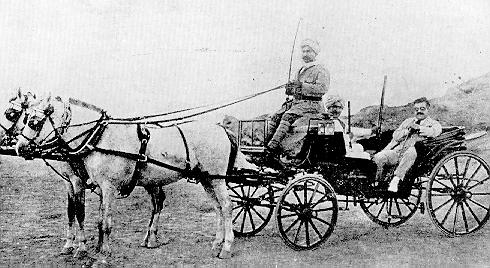
The Prince proceeding for a hunt from His birth place at Honey Moon Lodge in Karachi, Early 1921
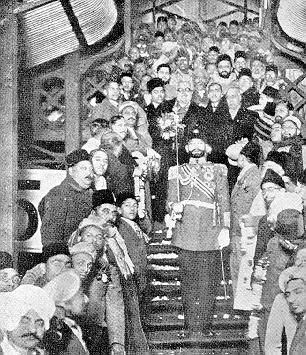
A rousing reception was accorded to His Royal Highness when He arrived in Delhi in 1928 to preside over the All-Parties Muslim Conference
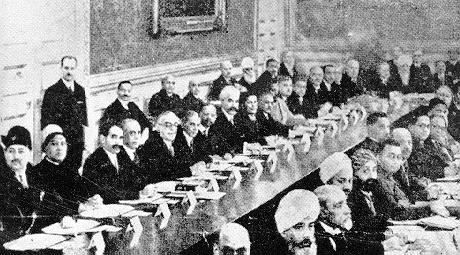
Quaid-i-Azam Mohammad Ali Jinnah and Prince Aga Khan at the Round Table Conference in London, 1931
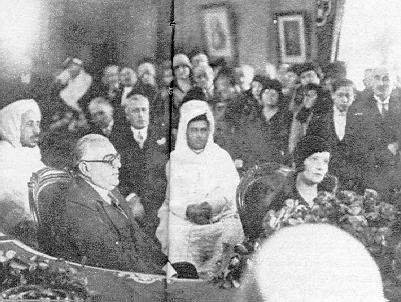
Prince Sultan Mohammed Shah's wedding with Princess Andree Caron at Aix-les-Bains
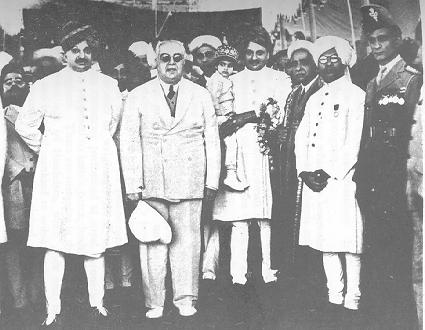
H.H Sultan Mohammed Shah during a visit to the state of Jamnagar in Kathiawar, February 1939
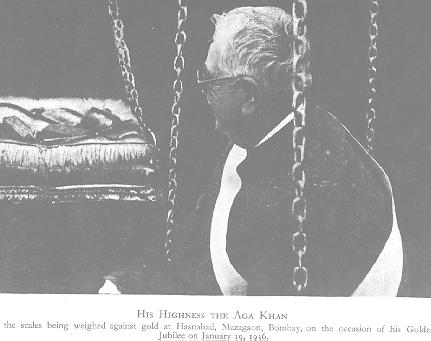
H.HSultan Mohammed Shah on the occasion of His Golden Jubilee on January 19 1936 being weighed against gold at Hasnabad, Mazagaon, Bombay.
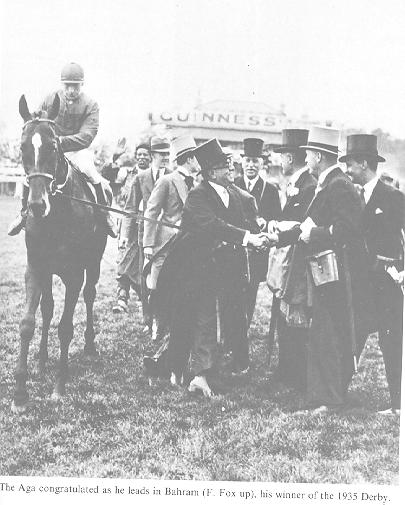
Aga Khan III with Bahram, winner of the 1935 Derby, F. Fox , 1932
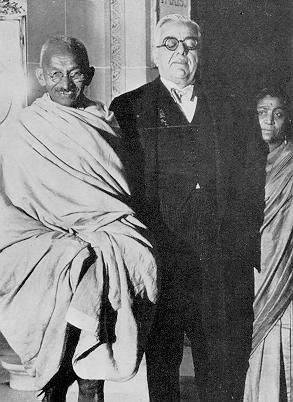
Aga Khan III with Gandhi at the Ritz Hotel, London in 1931
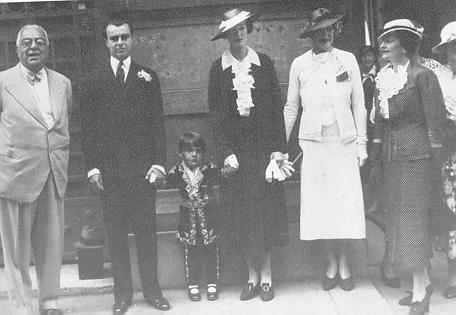
Prince Aly Khan and his bride, Mrs Loel Guiness, formerly the Hon. Joan Yarde-Buller, photographed after the civil ceremony, with the Aga Khan, the bride's mother and Begum Andree, 1936
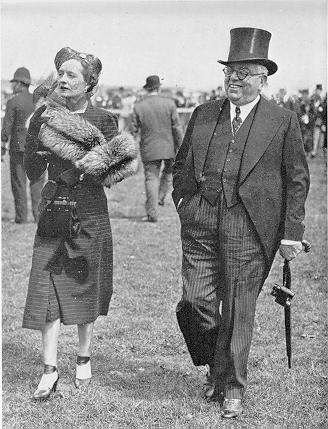
Aga Khan III and Begum Andree et Epsom im 1938
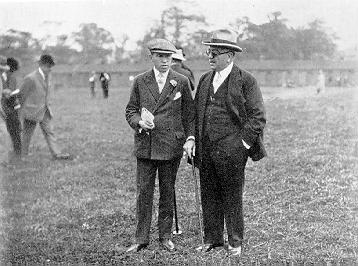
With Lord Carnarvon at the Doncaster Sales in 1926
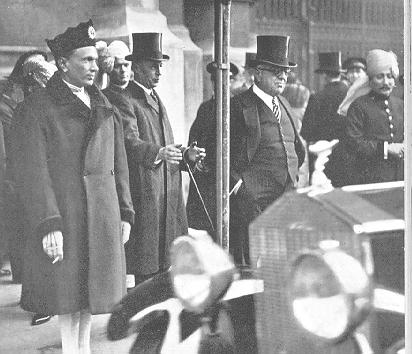
Leaving the House of Lords with the Maharajah of Alwar (left) and Lieut-Col Stewart Patterson, Political A.D.C to the Secretary of State for Inda, afterthe inaugural session of the 1930 Round Table Conference
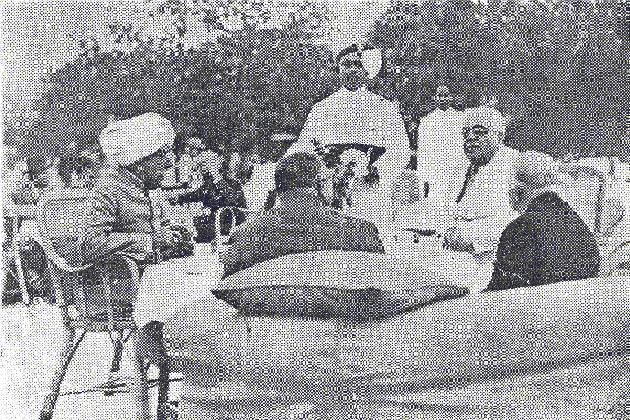
Seth Shantidas Askaran, a leading Merchant of Bombay gave a garden party in honor of H.H Aga Khan. The picture shows Mowlana Hazar Imam with the Maharao of Cutch
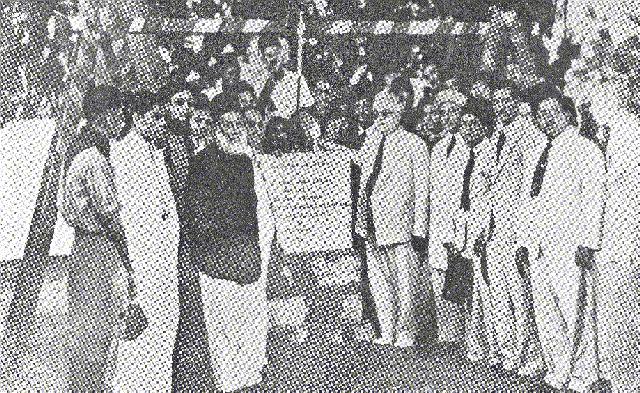
H.H Sultan Mohamed Shah is seen with a trowel laying the foundation stione of Sakina Jamia Mosque, East Africa.
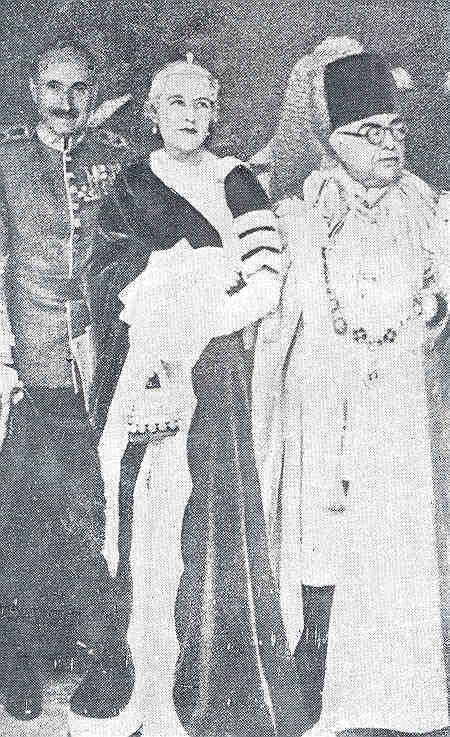
H.H Sultan Mohamed Shah on the occasion of coronaton of King george VI. The picture shows Mowlana Sultan Mohamed Shah with the Lord and Lady Furness.
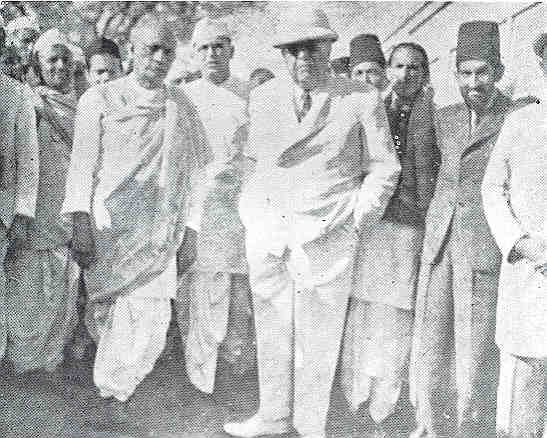
H.HSultan Mohamed Shah His Royal Highness the Prince Aga Khan was warmly received on His arrival at the Bardoly Station by Prominent Congress leaders. In the group photo are seen Sardar Valabhai Patel, Mr. Mahadeo Desai, H.H Sultan Mohamed Shah, Acharya Kriplani and others.
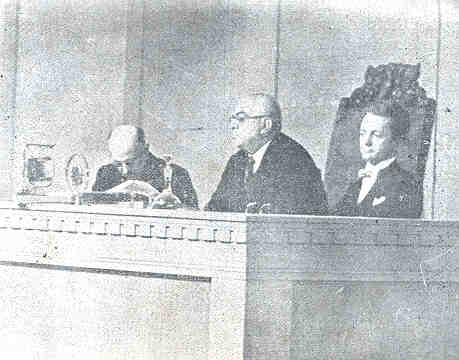
Sultan Mohamed Shah as President of the League of nations.
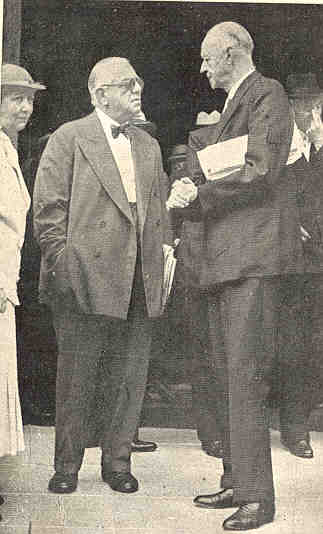
The Right Honorable His Highness The Aga Khan conversing with a delegate of The League
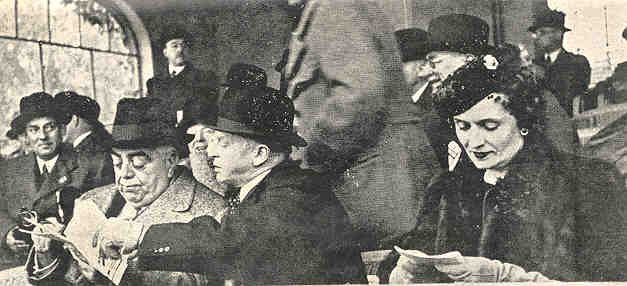
His Highness The Aga Khan and Begum Aga Khan in Hopegarten in Berlin and were entertained by high officials of Germany
Sultan Mahommed Shah, Aga Khan III, was the 48th Imam of the Shia Ismaili Muslims. He was one of the founders and the first president of the All-India Muslim League, and served as President of the League of Nations from 1937-38.
After his father's death, the Aga Khan III ascended the throne of Imamate at the age of 7 years, 9 months and 16 days on 6th Zilkada, 1302/August 17, 1885. The British empire awarded him the title of His Highness in 1886 in the time of Lord Reay, the then governor of Bombay. On that occasion, the Iranian king had sent him a sword and an ivory stick as presents.
In 1897, a terrible famine had badly shaken the Bombay Presidency, therefore, the Aga Khan III supplied food and seed, cattle and agricultural tools to the needy people, and in order to provide job opportunities, he started the construction of his Yarroda Palace at Poona. In Bombay, a large camp was pitched at Hasanabad, where thousands of people were daily fed at his expense; and to those who were ashamed openly to participate in this hospitality, the grain was provided to them privately for about six months. The famine was followed by the epidemic of bubonic plague and the superstitious people of India refused to be vaccinated against the disease. The Aga Khan III obtained the service of an eminent bacteriologist, Dr. Waldemar Mordecai Wolff Haffkine, the Director-in-Chief of the Government Plague Research Laboratory, Bombay. The Aga Khan was a crusader against meaningless supersitions and traditions, when soon after famine came plague, the people were in a panic and there was a hue and cry against inoculation with anti-plague serum. He therefore collected the people at his Khusaro Lodge, where the doctor was staying and addressed meetings explaining the benefits of inoculation. In front of this gathering he got himself inoculated, so as to dispel their superstitious fears, and strengthen their confidence in scientific methods of cure. This prompted others to follow and many lives were saved as a result. In the meantime, it had been proposed to give a public dinner to the Aga Khan III in Bombay in view of his outstanding services. When he had been informed of it, he wrote to the Secretary of the Reception Committee a letter, which showed his innermost feeling evoked by the distress of the poor people. He wrote: "I cannot accept any entertainment when thousands of people are dying of starvation. It is almost wicked to waste money on rich food when thousands of people are starving. I would urge that every rupee that could be spared should be given for the relief of sufferers by famine instead of wasting it on the entertainments."
In 1316/1898, the Aga Khan III set out from Bombay on his first journey to Europe, and visited France and Britain, where he had an audience with Queen Victoria at Windsor Palace. In the state banquet at Windsor Palace, he was sitting next to the Queen on her right side. No ruling prince from India who held great temporal power would have been treated with greater honour and respect like the Aga Khan. He was invested the honourable title of Knight Commander of the Indian Empire (K.C.I.E.). He also met the future king Edward VII. The "Saint Gazette" (London, dated July 22, 1898) published the following report to this effect:-
"Her Majesty Queen Victoria had held a Levy, which was attended by Consuls of all countries, and His Highness the Aga Khan was also invited at the occasion. When the Aga Khan went there, the Queen herself went to receive him at the door and welcomed him with great respects and made him sit on the Throne of their Pope. As soon as the Aga Khan sat on the Throne, the Queen said to all the Consuls, "What is the reason of your surprise, and what you all are thinking of?" The Consuls replied, "Upto now, many Indian Kings have come to Europe, but you have given more honours to Aga Khan, and even made him sit on the Throne of our Pope; what is the reason of this?" The Queen in reply said, "You are all wise, prudent and learned, and you know better than I the reason of this. In short, I must tell you that we have never seen our religious leader Jesus Christ, and without doubt, the Aga Khan is our same leader, and considering this, I have made him sit on our Pope's Throne." On hearing this, all Consuls were greatly surprised, and wired to their respective countries about the above fact. Consequently, the Rulers of France, Germany, Italy, Belgium etc. sent telegrams to Aga Khan from all over, requesting him to give them honour of visiting their countries, which the Aga Khan accepted."
The Aga Khan III paid his first visit to East African countries in 1317/1899, where the Sultan of Zanzibar granted him the title of Brilliant Star of Zanzibar. On his second visit to Europe in 1900, the Aga Khan III held a meeting with Muzaffaruddin Shah Qajar (1313-1324/1896-1907) of Iran in Paris, who awarded him the title of Shamsul Hamayun or Star of Persia. He had also a meeting with Turkish Sultan Abdul Hamid II in Istanbul, who granted him the title of Star of Turkey. The German emperor Kaiser William II also awarded the title of First Class Prussian Order of the Royal Crown at Potsdam.
On January 22, 1901, the Queen Victoria expired, therefore, the Aga Khan III attended the funeral at London on February 2, 1901. He was the personal guest of emperor Edward VII at his coronation in August 2, 1902, who promoted the Aga Khan from the rank of Knight (K.C.I.E.) to that of Grand Commander of the Order of Indian Empire (G.C.I.E.). He returned to India in November, 1902. The viceroy of India, Lord Curzon appointed him to a seat of his Legislative Council of India.
He played important role in construction of Aligarh Muslim University. To make a concerted drive for the collection of funds,, he went on a collecting tour through India's main Muslim areas: `As a mendicant', he announced, `I am now going out to beg from house to house and from street to street for the children of Indian Muslims.' It was a triumphal tour. Wherever he went, people unharnessed the horses of his carriage and pulled it themselves for miles."
Qayyum A. Malick writes in "Prince Aga Khan" (Karachi, 1954, p. 64) that once the Aga Khan on his way to Bombay to collect funds for the university, the Aga Khan stopped his car at the office of a person, who was known to be his bitterest critic. The man stood up bewildered and asked, "Whom do you want Sir?" "I have come for your contribution to the Muslim university fund," said the Aga Khan. The man drew up a cheque for Rs. 5000/-. After pocketing the cheque, the Aga Khan took off his hat and said, "Now as a beggar, I beg from you something for the children of Islam. Put something in the bowl of this mendicant." The man wrote another cheque for Rs. 15000/- with moist eyes, and said, "Your Highness, now it is my turn to beg. I beg of you in the name of the most merciful God to forgive me for anything that I may have said against you. I never knew you were so great." The Aga Khan said, "Dont worry! It is my nature to forgive and forget in the cause of Islam and the Muslims."
At the end of the First World War in 1918, a Paris Peace Conference had been formulated by the Allies in 1919, being composed of four leading statesmen, viz. Loyed George representing Great Britain, M. Clemencean France, Signor Orlando Italy and President Wilson, the United States; and finally The League of Nations was founded in Geneva in January, 1920 and M.P. Hymans of Belgium was appointed the first President. The Aga Khan led the Indian delegates in Geneva, and attended the Disarmament Conference, where he delivered a stirring speech on February 19, 1932. He also attended the Third Disarmament Conference and made a speech on February 2, 1933. During the 15th session of the League of Nations, the Aga Khan also gave his speech to the assembly on September 27, 1934. He also addressed the League of Nations in Geneva during its 17th session on September 29, 1936. In sum, the Aga Khan's interest in international affairs in Geneva culminated in his election in the session of July, 1937 as the President of League of Nations in place of the former President, M.P. Van Zeeland of Belgium, and all the 49 member countries voted in a secret ballot were found to be in his favor.
The Aga Khan made his first presidential speech in the League of Nations on September 13, 1937 during its 18th session. Thus, Sir Samuel Hoare, the ex-Secretary of State of India was compelled to remark that, "The Aga Khan does not belong to one community or one country. He is a citizen of the world par excellence."
In 1949, the Aga Khan III was declared an Iranian citizen and was awarded the distinguished title of Hazratwala, i.e. His Royal Highness by His Imperial Majesty the Shahinshah of Iran. He also visited Pakistan for the first time after independence on February 2, 1950 and was awarded an honorary degree of LL.D. from the Dacca University in 1951. On March 3, 1951, the Syrian government invested him the title of Order of Ommayad. In 1951, the Aga Khan III paid his first visit to Iran to attend the marriage of the Iranian king with queen Sorayya. Arriving in Tehran, he looked up at the sky and the land-scape and exclaimed: "What a lovely and beautiful country I have. I had been cherishing for years the desire to visit my beloved native land." On February 11, 1951, one day before the wedding ceremony, His Majesty the King had awarded the Order of the Crown First Class to the Aga Khan. During his visit to Iran, he also went to see Mahallat. Thousands of people lined the roads for a glimpse of one whose ancestors had been the revered and benevolent rulers of the area.
The Aga Khan used to raise his voice in the defence of Islam, whenever it was under inroad. In October, 1951, the "London Times" made some unfair allegations against Islam and the Prophet Muhammad. In a spirited reply to the "London Times" on October 22, 1951, he said that, "Islam was not only tolerant of other faiths but most respectful and indeed fully accepted the divine inspiration of all theistic faiths that came before Islam." He further said: "If there has been violent reaction against the West in some Muslim countries, the reason is to be found in the attitude and behaviour of the westerners, their ignorance and want of respect for the faith and culture of Islam, of which the reference to that faith in your leading article is a typical and usual example."
During his long Imamate period, the Aga Khan III devoted much of his time and resources in consolidating and organizing the Ismaili community, especially in India and East Africa. He was notably concerned with introducing the socio-economic reforms, transforming his followers into a modern, self-sufficient community with high standard of education and welfare. The development of a new communal organization thus, became one of the Aga Khan's major tasks.
In 1956, Queen Elizabeth of Britain conferred upon the Aga Khan the title of Grand Cross of the Saint Michael and Saint George (G.C.M.G.).
Sultan Muhammad Shah, the Aga Khan III, the 48th Imam of the Shia Ismaili Muslims died at his villa in Versoix, near Geneva on 12th Zilhaja, 1376/ July 11, 1957. His son Prince Aly Khan recalling the last days of his father, said: "Often he would ask me to play the gramophone records containing recitation of the Holy Koran. With the recitation of the Koran, I could see his lips move in silence, repeating the verse of the Koran." He was buried in a permanent mausoleum at Aswan, overlooking the Nile in Egypt. Labib Habachi writes in "Aswan" (Cairo, 1959, p. 76) that in 1947, the Aga Khan III visited Aswan, and decided to live some time each year in Aswan, choosing it as his last resting-place. The Begum Aga Khan, in her interview to "Al- Ahram" (Cairo, April 23, 1992) had however said that, "We had been coming in Aswan since 1935 when the place was not a touristic location. He (the Aga Khan III) used to say that Egypt was the flag of Islam, and he wanted to be buried there."
In accordance with his last will, his grandson, Karim was succeeded to the Imamate as the 49th Imam. A fitting tribute was paid to him by daily English "Dawn" of Pakistan on July 12, 1957 that, "With the passing away of the Aga Khan, we witness the end of an era." According to "New York Times" (July 12, 1957), "The Aga Khan III's death leaves our contemporary world just a little less colorful than it was."

The Prince proceeding for a hunt from His birth place at Honey Moon Lodge in Karachi, Early 1921

A rousing reception was accorded to His Royal Highness when He arrived in Delhi in 1928 to preside over the All-Parties Muslim Conference

Quaid-i-Azam Mohammad Ali Jinnah and Prince Aga Khan at the Round Table Conference in London, 1931

Prince Sultan Mohammed Shah's wedding with Princess Andree Caron at Aix-les-Bains

H.H Sultan Mohammed Shah during a visit to the state of Jamnagar in Kathiawar, February 1939

H.HSultan Mohammed Shah on the occasion of His Golden Jubilee on January 19 1936 being weighed against gold at Hasnabad, Mazagaon, Bombay.

Aga Khan III with Bahram, winner of the 1935 Derby, F. Fox , 1932

Aga Khan III with Gandhi at the Ritz Hotel, London in 1931

Prince Aly Khan and his bride, Mrs Loel Guiness, formerly the Hon. Joan Yarde-Buller, photographed after the civil ceremony, with the Aga Khan, the bride's mother and Begum Andree, 1936

Aga Khan III and Begum Andree et Epsom im 1938

With Lord Carnarvon at the Doncaster Sales in 1926

Leaving the House of Lords with the Maharajah of Alwar (left) and Lieut-Col Stewart Patterson, Political A.D.C to the Secretary of State for Inda, afterthe inaugural session of the 1930 Round Table Conference

Seth Shantidas Askaran, a leading Merchant of Bombay gave a garden party in honor of H.H Aga Khan. The picture shows Mowlana Hazar Imam with the Maharao of Cutch

H.H Sultan Mohamed Shah is seen with a trowel laying the foundation stione of Sakina Jamia Mosque, East Africa.

H.H Sultan Mohamed Shah on the occasion of coronaton of King george VI. The picture shows Mowlana Sultan Mohamed Shah with the Lord and Lady Furness.

H.HSultan Mohamed Shah His Royal Highness the Prince Aga Khan was warmly received on His arrival at the Bardoly Station by Prominent Congress leaders. In the group photo are seen Sardar Valabhai Patel, Mr. Mahadeo Desai, H.H Sultan Mohamed Shah, Acharya Kriplani and others.

Sultan Mohamed Shah as President of the League of nations.

The Right Honorable His Highness The Aga Khan conversing with a delegate of The League

His Highness The Aga Khan and Begum Aga Khan in Hopegarten in Berlin and were entertained by high officials of Germany

No comments:
Post a Comment